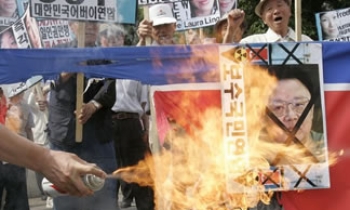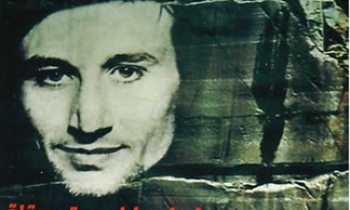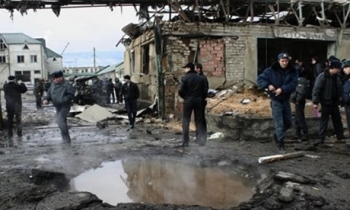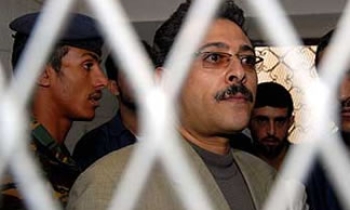ARCATA, California: At 1 a.m. on a recent morning in Nairobi, masked police officers broke into the offices of KTN television and The Standard, a Kenyan newspaper, both owned by the Standard Media Group. Commandos with assault rifles seized files and equipment. The printing press was shut down, newspapers were burned, employees terrorized and three reporters were jailed.
While the Kenyan president and several ministers pleaded ignorance of the assault, John Michuki, the internal security minister, admitted that the press raids were planned by government officials, who presumably wanted to send a signal to the Kenyan media that recent reporting on government corruption would not be tolerated. "When you rattle a snake you must be ready to be bitten," he said.
Such a blatant crackdown on the media had not been seen in Kenya for 20 years. While 26 embassies and international organizations protested, including the United Nations, the World Bank, as is its custom, kept silent.
Then, after hesitating for six days, the bank openly rebuked the government for the raid, and The Standard reported that the bank had imposed a new rule making press freedom a condition before the World Bank would agree to release $250 million in frozen loans. The loans had been withheld since reports surfaced of massive government fraud, even before John Githongo, appointed by President Mwai Kibaki to be Kenya's "anticorruption czar," exposed details of government graft and fled the country.
Colin Bruce, the World Bank's country director in Kenya, denied that the bank was making freedom of the media a new element of conditionality, but by then the Kenyan stock market had already tumbled.
Even if formal conditionality has not been imposed, the World Bank's president, Paul Wolfowitz, is quietly breaking precedent by ordering the bank to publicly protest when press freedoms are under attack.
Wolfowitz understands that open news media are the most important means to expose the endemic corruption that is undermining economic growth in the developing world. And he is determined to do more than just talk about it. He recently held up $800 million in loans, including the quarter of a billion dollars for Kenya, because of allegations of corruption. "Corruption is the biggest threat to democracy since Communism," Wolfowitz has said.
Wolfowitz and senior World Bank economists know that strong, independent news media play a key role in promoting transparency and good governance, which in turn lead to economic and political development. Corruption can only flourish when governments operate with impunity outside the bright lights and public exposure that independent media bring. So autocrats and corrupt politicians everywhere seek to suppress their homegrown independent media.
The bank has been reluctant in the past to speak out on this issue for fear that it would be seen as interfering in the domestic politics of sovereign states. But media freedom is a universal right; it is also a precondition for tackling the central issue of corruption. As Wolfowitz has said, "you really can't talk about economic development without talking about freedom of the press."
If Wolfowitz and the Bank are to attack corruption effectively, they would also be well advised to make media freedom a precondition for future loans. The adoption of a media accountability index with common standards, to measure a country's compliance with basic media freedoms, would greatly reduce corruption in the developing world.
Inducements to increase transparency within government can only go so far. Unleashing a free press makes the public an active participant in reform. Protected by the threat of World Bank sanctions, the media everywhere would play their natural role of watchdog of the public interest.
In his book, "America at the Crossroads," Francis Fukuyama concludes that domestic pressure is the most effective force for long-term institutional reform. A free press guarantees that the public is informed and has a voice. By making press freedom a condition for its loans, the World Bank would protect the media, allowing them to defend the public's right to transparency and accountable government.
The bank is moving in the right direction. Media conditionality would be a decisive step forward.
David Hoffman is President of Internews Network, an international non-profit organization that promotes access to information for people around the world.









